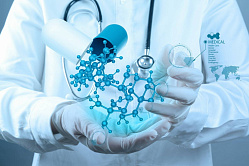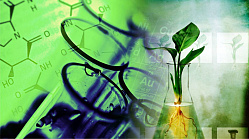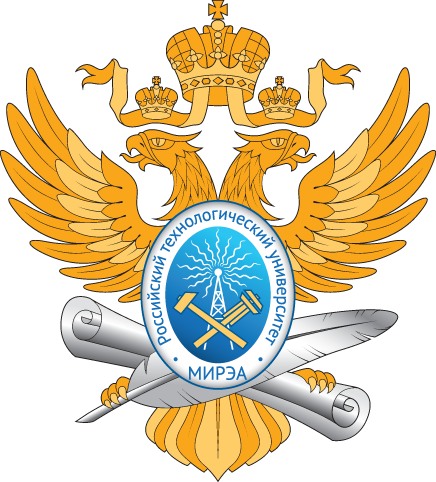04.04.01 Chemistry

The aim of the program is fundamental, theoretical and practical training of future specialists to resolve complex professional issues in the field of chemistry. Undergraduates study chemistry of macromolecular compounds, analytical, inorganic and physical chemistry, methods and technologies for obtaining medicinal substances with the application of processes, and much more.
Level of education:
Master’s degree
Form of training:
Full-time (day demartment)
Venue of training:
Moscow
Entrance exams:
— Chemistry
Programs, specializations:
Medical and pharmaceutical chemistry

The program of training includes fundamental and applied research activities in the field of modern organic, bioorganic, polymer and medicinal chemistry. The specialization covers the issues of molecular and computer modeling of the structures of medicinal substances and materials for biomedical purposes, carriers, delivery systems, development of chemical methods for their preparation, research of properties and participation in preclinical research.
Professional activity of graduates involves work with natural and synthetic biologically active substances, polymer carriers, materials and products for biomedical purposes, methods of molecular modeling of structures, chemical synthesis, physicochemical methods of analysis and preclinical research.
Professional activity of graduates involves work with natural and synthetic biologically active substances, polymer carriers, materials and products for biomedical purposes, methods of molecular modeling of structures, chemical synthesis, physicochemical methods of analysis and preclinical research.
Alumni can be employed as
- chemists
- experimental chemists
- organic-synthetic chemists
- biochemists
- researchers
- chemistry teachers at schools, lecturer at colleges and institutes
- quality control specialists
Program subjects
- Methods of bio-organic chemistry
- Pharmacology of drugs
- Physicochemical methods for the analysis of drugs and polymers
- Drug development strategy
- Preclinical drug trials
- Nanotechnological methods of drug delivery
- Modern organic stereochemistry
- Mechanisms of reactions in organic chemistry
- Conformational analysis
- Special chapters of biochemistry
- Chemistry of heterocyclic compounds
- Fundamentals of computer-aided drug design
- Catalytic reactions in organic synthesis
- Biodegradable polymers for medicine
- Physical chemistry of polymers and biopolymers
- High molecular weight compounds and supramolecular structures
- Applied aspects of polymer chemistry for biomedicine
- Synthesis of polymer suspensions for medicine
• Department of Chemistry and Technology of Biologically Active Compounds, Medical and Organic Chemistry named after N.А. Preobrazhensky
• Department of Chemistry and Technology of Macromolecular Compounds named after S.S. Medvedev
Fundamental and Applied Chemistry

Undergraduates participate in research and analysis of chemical processes occurring in nature and simulated in laboratory conditions, identify general patterns and regularities of such processes and manage them. Professional activity of program graduates is research related to the use of chemical phenomena and processes.
Alumni can be employed as
- chemists
- analytical chemists
- junior researchers
- research engineers
Program subjects
- Thermodynamic theory of solutions and intermolecular interaction
- Actual problems of modern chemistry
- Computer chemistry
- Theory of reactivity of chemical compounds
- Modern instrumental analytical chemistry
- Chromatographic methods of analysis and
- History and methodology of chemistry
- Methodological aspects of inorganic and coordination chemistry
- Chemistry of clusters
- Fundamental and applied aspects of chemical current sources
- Principles and technological foundations of catalysis
- Analytical methods for environmental monitoring
• Department of Analytical Chemistry named after I.P. Alimarina
• Department of Inorganic Chemistry named after A.N. Reformatsky
• Department of Physical Chemistry named after Ya.K. Syrkin
• Department of Colloidal Chemistry named after S.S. Voyutsky
- Educational Activity
-
Institutes
- Institute of Information Technologies
-
Institute of Artificial Intelligence
- About the Institute
- Institute Administration
- History of the Institute
-
Training programs
- Bachelor's Degree Programs
-
Master's Degree Programs
- 01.04.02 Applied mathematics and information science
- 09.04.01. Informatics and computer engineering
- 12.04.04 Biotechnical systems and technologies
- 15.04.04 Automation of technological processes and production
- 15.04.06 Mechatronics and robotics
- 27.04.03 System analysis and management
- 27.04.04 Engineering system control
- Infrastructure
- Alumni
- Contacts
- Institute of Radio Electronics and Informatics
-
Institute for Advanced Technologies and Industrial Programming
- About the Institute
- Institute Administration
- History of the Institute
-
Training programs
-
Bachelor's Degree Programs
- 09.03.02 Information systems and technologies
- 11.03.04 Electronics and nanoelectronics
- 12.03.05 Laser technology and laser techniques
- 15.03.01 Mechanical engineering
- 22.03.01 Materials science and technology
- 27.03.01 Standardization and metrology
- 28.03.01 Nanotechnology and microsystems engineering
- 29.03.04 Decorative material working techniques
- 54.03.01 Graphic design
-
Master's Degree Programs
- 09.04.02. Information systems and technologies
- 11.04.04 Electronics and nanoelectronics
- 12.04.02 Optical engineering
- 15.04.01 Mechanical engineering
- 22.04.01 Materials science and technology
- 27.04.01 Standardization and metrology
- 29.04.04 Decorative material working techniques
- 54.04.01 Graphic design
-
Bachelor's Degree Programs
- Infrastructure
- Alumni
- Contacts
- Institute for Cybersecurity and Digital Technologies
- Lomonosov Institute of Fine Chemical Technologies
- Institute of International Education
- Institute of Management Technologies
-
Mega-Laboratories
- Industry 4.0: Digital Robotized Production center
- Laboratory of Intelligent Autonomous and Multi-Agent Robotic Systems
- Laboratory of Analytic, Modeling, Design and Digital Prototyping Technologies
- Motion Capture Laboratory
- Center of Innovative Technologies in Microelectronics
- Catalytic and Mass Exchange Processes center
- Cell Technologies Megalaboratory operating on the basis of the Department of Chemistry and Technology of Biologically Active Compounds, Medical and Organic Chemistry named after N.A. Preobrazhensky
- Center for Cybersports Robotics
- Elastomers. Thermoplastics. Technologies Educational and Research Center operating on the basis of the Department of Chemistry and Technology of Elastomer Processing named after F.F. Koshelev
- Immersive Technologies Laboratory
- Import Substitution of Information Technologies Educational and scientific testing complex
- Laboratory for the Development and Transfer of Microfluidic Technologies (DTMT)
- Mobile Robotics University Laboratory
- Rare and Precious Metals Research and Technological Center operating on the basis of the Department of Chemistry and Technology of Rare Elements named after K.A. Bolshakov
- Research and Educational Center for Biosynthesis, Isolation and Purification of Monoclonal Antibodies (Generium)
- Smart Production Systems Educational and Scientific Center
- Techno-coworking
- Technocoworking
- Radio electronic Technologies Megalaboratory
- Situation center
- Scientific and Educational Center for Medical Radiology and Dosimetry
- Educational and Research Center for Space Monitoring ("CosMoCenter")
- Laboratory of Geographic Information Systems and Technologies
- Bachelor's Degree Programs
- Master's Degree Programs
- Additional Education Programs
- Physical Education and Sports
© 2024 MIREA - Russian Technological University
